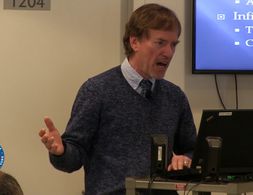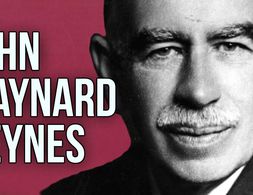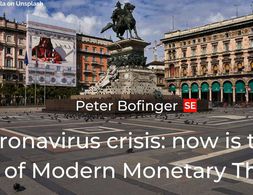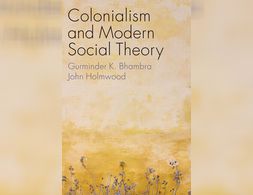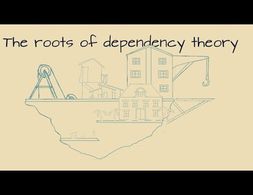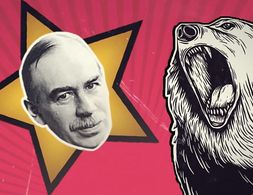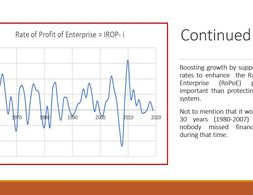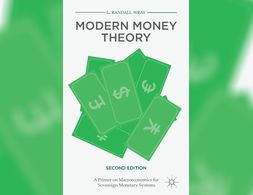✕
367 results
As tax day approached, St. Francis College Economics Professors launched their first Economics Week with three days of guest speakers and student research. Randall Wray explains some basic principles of Modern Monetary Theory.
A review of:
[1] Intermediate Microeconomics, H.R. Varian
[2] Mikrooekonomie, R.S. Pindyck, D.L. Rubinfeld
[3] Grundzuege der mikrooekonomischen Theorie, J. Schumann, U. Meyer, W. Stroebele
An Introduction to the Political Theory of John Maynard Keynes. John Maynard Keynes was arguably the greatest economist of the 20th century. He discovered the idea that governments should stimulate demand during economic downturns.
Peter Bofinger argues that the Modern Monetary Theory gives theoretical justification for bold answers to the corona crisis.
The Philosophy of Economics Foundational Text provides a systematic and well-structured overview over the field of philosophy of economics.
A comprehensive account of how government deficits and debt drive inflation
Economic theory must distinguish between publicly owned and privately owned property if it is to account for the effect of institutions on the behavior of individuals. Careful study of the theories of Marxists and the real-world experience in the Soviet economy offer important lessons and insight for economic modeling and the ongoing development of theory. In this course, Marxist/Leninist theory and Soviet reality will be studied with an open mind, and with the goal of taking lessons from the case study. To what extent was the Soviet economy an accurate expression of Marxist theory? If Marxism were tried somewhere else would the results be the same?
The concept of financialisation has undergone a similar career as ‘globalisation’, ‘neoliberalism’ or even ‘capitalism’, in the course of which it changed from the explanandum to the explanans; the process of financialisation is taken for granted, while the concrete historical and empirical causal conditions of its realisation and perpetuation are being moved into the background.
This is an immensely important book for any student of social theory interested in understanding the colonial roots of a lot of contemporary thinking From a post colonial perspective Gurminder Bhambra and John Holmwood unpack how the emergence of modern society in the context of European colonialism and empire impacted …
Exploring Economics, an open-access e-learning platform, giving you the opportunity to discover & study a variety of economic theories, topics, and methods.
Exploring Economics, an open-access e-learning platform, giving you the opportunity to discover & study a variety of economic theories, topics, and methods.
This book provides a new methodological approach to money and macroeconomics. Realizing that the abstract equilibrium models lacked descriptions of fundamental issues of a modern monetary economy, the focus of this book lies on the (stylized) balance sheets of the main actors. Money, after all, is born on the balance sheets of the central bank or commercial bank.
Developmental economics
In this interview, Elizabeth Currid-Halkett presents her view on how "the leisure class has been replaced by a new elite, and how their consumer habits affect us all".
Looking for a pithy introduction into John Maynard Keynes's economic thinking? This BBC radio programme may be it.
The goal of the class is to acquire familiarity with recently-published research in alternative macroeconomics with a focus on the distribution of income and wealth, cyclical growth models, and technical change.
For many social critics "globalization" is a signpost of “late-capitalism” with the rise of multinational corporations, mass consumption and the multidirectional flows of capital, labor, media, communication, ideologies and social movements across national borders. Feminist analyses of globalization and the gendered and sexualized permutations of these phenomena offer a critical stance for theorizing these processes, and for studying their complex articulations across time and space.
This course attempts to explain the role and the importance of the financial system in the global economy. Rather than separating off the financial world from the rest of the economy, financial equilibrium is studied as an extension of economic equilibrium. The course also gives a picture of the kind of thinking and analysis done by hedge funds.
After long-time negligence, the Global South and the North-South divide are back on the agenda of development economics again. This book is a neat, accessible introduction into the topic, covering both the current situation and potential remedies from different points of view.
Neoclassical economics focuses on the allocation of scarce resources. Economic analysis is mainly concerned with determining the efficient allocation of resources in order to increase welfare.
Think Academy Think Academy
This lecture was held in the context of the a two day conference called Which pluralism for thinking about how to achieve a more sustainable and resilient economy The practices institutions and system logics of today s economy are not suitable for appropriately addressing fundamental human needs The climate crisis …
In a challenge to conventional views on modern monetary and fiscal policy, this book presents a coherent analysis of how money is created, how it functions in global exchange rate regimes, and how the mystification of the nature of money has constrained governments, and prevented states from acting in the public interest.
In this article, Perry Mehrling, a professor of economics at Barnard College, presents and discusses three theories of banking which are guiding bank regulation. These are credit creation theory, fractional reserve theory and debt intermediation theory.
Commons stand for a plurality of practices ‘beyond market and state’ as the famous Commons scholar – and first female noble prize winner of economics - Elinor Ostrom put it. Their practice and theory challenge classical economic theory and stand for a different mode of caring, producing and governing. Within this workshop we want to dive into theory, practice and utopia of Commons following four blocks...
Institutional economics focuses on the role of social institutions in terms of laws or contracts, but also those of social norms and patterns of human behaviour that are connected to the social organisation of production, distribution and consumption in the economy.
Marx’s theory of the falling rate of profit is not only empirically borne out, but the theory he proposed seems to describe accurately how that happens. Furthermore, the whole process is useful for understanding the history of contemporary capitalism.
Austrian economics focuses on the economic coordination of individuals in a market economy. Austrian economics emphasises individualism, subjectivism, laissez-faire politics, uncertainty and the role of the entrepreneur, amongst others.
After completing the module, participants should be able to have general overview on the theory of commons. They can differentiate between neoclassical, new institutional and social/critical commons theory and can use these theories to assess real life common-pool resource management and commoning pratices.
Completing the Economics of Discrimination module, the students should have acquired knowledge and understanding of the existing similarities and differences of the definition and analysis of discrimination across economic theory and cultural theory.
Mainstream economic theory has been increasingly questioned following the recent global financial crisis. Marc Lavoie shows how post-Keynesian theory can function as a coherent substitute by focusing on realistic assumptions and integrating the financial and real sides of the economy.
Potts (economics, University of Queensland) proposes evolutionary microeconomics as a synthesis of the collective schools of heterodox economic thought with complex systems theory and graph theory.
We use cookies on our website. Click on Accept to help us to make Exploring Economics constantly better!

